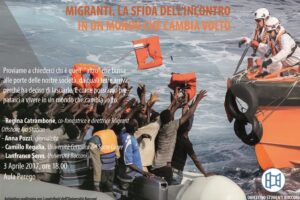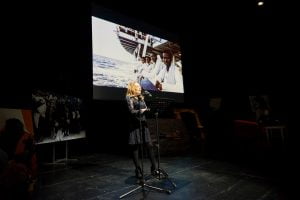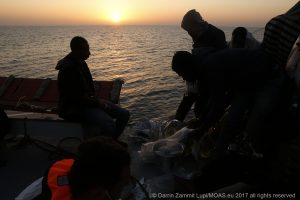Article 2, The Lisbon Treaty
The Union is founded on the values of respect for human dignity, freedom, democracy, equality, the rule of law and respect for human rights, including the rights of persons belonging to minorities. These values are common to the Member States in a society in which pluralism, non-discrimination, tolerance, justice, solidarity and equality between women and men prevail.
The Lisbon Treaty was signed by the Heads of State and Governments of the 27 European Member States in 2007 and entered into force after being ratified 2 years later.
The main goal was to give EU’s external actions more coherence and consistency in order to harmonize the whole European system.
The term solidarity has been used in various contexts and with different meanings.
Nevertheless, it entails both the duty and the right to share advantages and disadvantages, prosperity and burdens among European Member States.
It aims at overcoming national borders – be they economic, cultural, geographical or emotional – in order to achieve deeper cohesion.
At that time Europe had faced two world wars and was left in ruins. While the ghosts of conflict were still present, Europe focused on rising from the ashes, and European politicians deemed it fundamental to lay solid foundations for the future based on shared values and principles.
Among them, solidarity was crucial.

In 1950 Schuman, in his famous Declaration, stated: “Europe will not be made all at once, or according to a single plan. It will be built through concrete achievements which first create a de facto solidarity“.
Schuman was well aware that the process of building the European Union would be a long and complicated one, and its necessary starting point was at the economic level: European Member States were deploying common efforts to recover their post-war economies. But soon after, new fields were involved.
The European Union was created to safeguard lasting peace and human rights.
After experiencing the horrors caused by the Holocaust, the values of equality, unity, freedom and cohesion became a guiding star for its Founding Fathers.
But what’s left of those noble aspirations and thirst for social justice?
What remains of our dream for lasting peace inside and outside Europe?
A pale shadow of our noble values.
Our ambitious European dream has become a mere legacy from the past.
Migration flows have worsened the general situation.
Migrants and refugees have put at stake European stability, undermined by economic slowdown and recession.
After experiencing the best of the European dream and its freedom, young generations have ended up being the main victims of the economic recession, thus developing an emotional distance from the European moral project.
The outcome is in front of our eyes.
Member States are tightening their national borders in response to migration flows.
Refugees and migrants have become victims of violence and racial hatred.
Moreover, they are often treated as criminals and segregated in remote areas with poor access to basic services.
Europe has never been so fragmented, and is risking to collapse under the weight of migration flows, meanwhile, solidarity with refugees is almost becoming a crime.
The only chance for Europe to survive is to restore its founding principles and values.
Only by looking at our shared roots and aspirations may we overcome national divisions and egoism.
Only by focusing on people instead of statistics or figures may we build a new EU and implement a lasting peace among European peoples; dignity, equity and justice for all those living on its territory despite their country of origin.
As claimed last year by European Commission President Jean-Claude Juncker, national borders are “the worst invention ever”, and this is true, both for physical and emotional borders.
The latest informal meeting in Tallinn with the Home Ministers of 28 European Member States has not been effective in re-launching European solidarity.
While in words other EU countries are expressing solidarity to Italy, in action they are far, far away from granting Italy real support in managing current migration flows. Once again, safety and security are addressed only from our perspective.
Migrants are seen as a problem to be solved, rather than paying attention to their well-being or to the abuse that the people are suffering daily in Libya.
Thousands of people are stranded with no alternatives to a fatal sea crossing.



